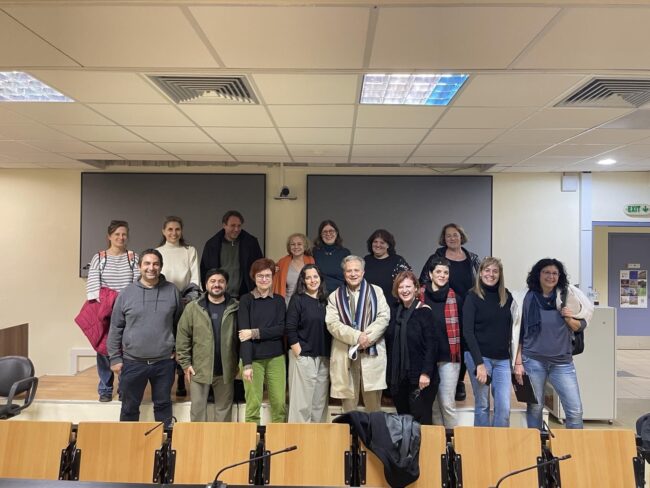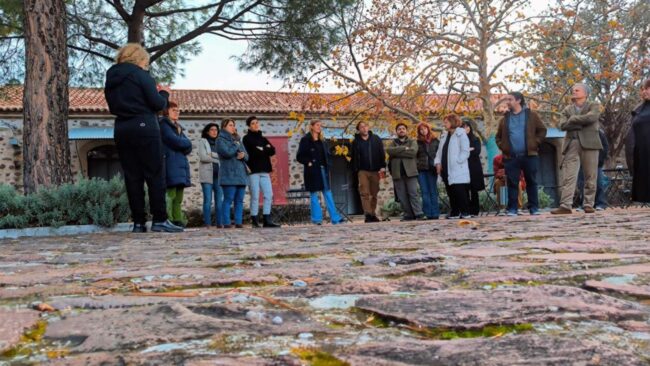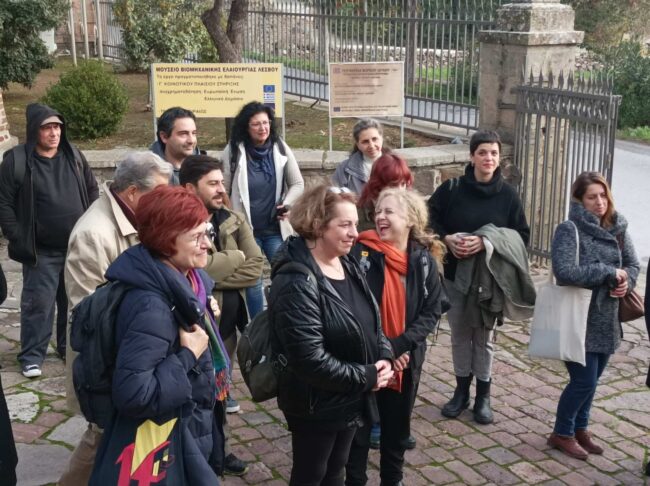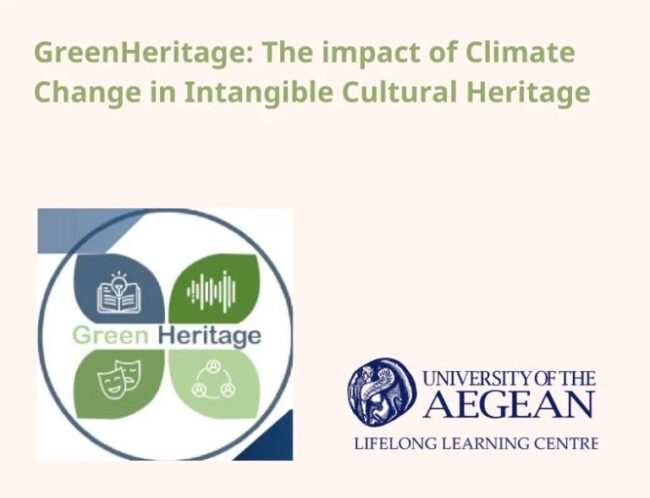On December 9th and 10th, 2024, a two-day workshop titled “Intangible Cultural Heritage and Climate Change” took place in Lesbos. The event was organized and conducted by the Department of Cultural Technology and Communication of the University of the Aegean, through the Cultural Heritage Management Laboratory (CHMLab), one of the partners of the #greenheritage_eu project. The workshop served as a crucial opportunity for reflection and discussion on the relationship between intangible cultural heritage and the challenges posed by climate change, a theme of increasing importance in the context of heritage preservation and enhancement.
The first day of the workshop took place at the University of Mytilene campus, where theoretical and practical sessions were held. Experts explored the impact of environmental changes on intangible cultural heritage, particularly in relation to local traditions, artisanal practices, and ancestral knowledge that form the foundation of cultural identities within communities. On the second day, the activities moved to the Museum of Industrial Olive Oil Production in Agia Paraskevi, an important venue within the museum network of the Cultural Foundation of the Piraeus Bank. This location provided an ideal setting to explore the connection between industrial heritage and contemporary ecological issues.
The workshop attracted a wide range of participants, including university and postgraduate students, archaeologists, historians, secondary school teachers, tourism specialists, and professionals from the museum and cultural sectors. These participants came not only from Lesbos but also from other parts of Greece, demonstrating collective interest and commitment to addressing the issue of climate change in relation to the preservation of intangible cultural heritage. The event offered a platform for exchanging knowledge, discussing innovative approaches, and sharing best practices in the sustainable management of cultural heritage, with the aim of promoting adaptation strategies to environmental challenges.
In an era where climate change threatens the continuity of traditions and cultural practices passed down through generations, the workshop highlighted the urgency of integrating environmental sustainability into the management and enhancement of cultural heritage. The goal is to ensure that intangible resources, which are crucial for local communities as well as for humanity as a whole, are preserved for future generations. The initiative emphasized the importance of interdisciplinary collaboration, involving both academic institutions and local organizations, to develop practical and shared solutions for addressing climate change-related challenges in an effective and sustainable manner.




